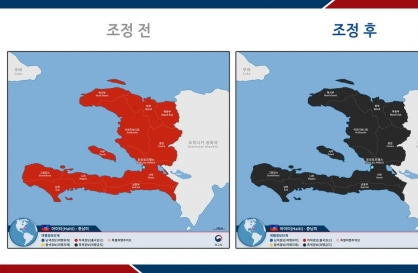It would be humiliating for a man in public office to acknowledge that he has failed in his mission. But Kim Choong-soo, governor of the Bank of Korea, virtually did so when he was briefing on its monetary policy to the press on Thursday.
On its homepage, the central bank has a statement in bold letters that it “pursues price stability.” It adds that it is the “highest value” that it promotes. Near this catchphrase is a description of its 2010-12 target range of consumer price-based inflation ― 3 percent plus or minus 1 percent. In other words, the central bank reminds visitors to its homepage that the primary mission it is tasked with is a fight against inflation.
At his Thursday briefing, however, the central bank governor said consumer prices are likely to go up beyond the 4 percent level this year ― the upper limit of its target. Indeed, the consumer price index, which was at 4.5 percent during the past eight months, shows no sign of being tamed during the next four months appreciatively enough to average at 4 percent or lower for the entire year.
Even more hurtful to the central bank was that it could not afford to raise its key rate this month in an attempt to put the damage under control. Its Monetary Policy Committee decided on Thursday to keep it intact for the three consecutive months, at 3.25 percent. Few would claim the central bank, by doing so, made a grave mistake, given that a double-dip recession is looming in the United States and Europe.
Nonetheless, the predicament in which it has placed itself is of its own making. It lost its battle against inflation mainly because it did not raise the key rate when it could afford to. More accurately, it did not even put up a fight against the price increases under pressure from the administration, which had until recently maintained a growth-first economic policy.
As consumer prices are rising while growth is stunted, some claim the Korean economy has already entered the phase of stagflation. Here, the central bank cannot avoid its share of accountability.
Another consequence of the central bank’s loosened monetary policy is a steep increase in household debt, which economic experts say is a ticking time bomb. It has to hold itself accountable for ignoring the financial watchdogs’ demand that the benchmark rate be raised to discourage households from taking on loans.
On its homepage, the central bank has a statement in bold letters that it “pursues price stability.” It adds that it is the “highest value” that it promotes. Near this catchphrase is a description of its 2010-12 target range of consumer price-based inflation ― 3 percent plus or minus 1 percent. In other words, the central bank reminds visitors to its homepage that the primary mission it is tasked with is a fight against inflation.
At his Thursday briefing, however, the central bank governor said consumer prices are likely to go up beyond the 4 percent level this year ― the upper limit of its target. Indeed, the consumer price index, which was at 4.5 percent during the past eight months, shows no sign of being tamed during the next four months appreciatively enough to average at 4 percent or lower for the entire year.
Even more hurtful to the central bank was that it could not afford to raise its key rate this month in an attempt to put the damage under control. Its Monetary Policy Committee decided on Thursday to keep it intact for the three consecutive months, at 3.25 percent. Few would claim the central bank, by doing so, made a grave mistake, given that a double-dip recession is looming in the United States and Europe.
Nonetheless, the predicament in which it has placed itself is of its own making. It lost its battle against inflation mainly because it did not raise the key rate when it could afford to. More accurately, it did not even put up a fight against the price increases under pressure from the administration, which had until recently maintained a growth-first economic policy.
As consumer prices are rising while growth is stunted, some claim the Korean economy has already entered the phase of stagflation. Here, the central bank cannot avoid its share of accountability.
Another consequence of the central bank’s loosened monetary policy is a steep increase in household debt, which economic experts say is a ticking time bomb. It has to hold itself accountable for ignoring the financial watchdogs’ demand that the benchmark rate be raised to discourage households from taking on loans.


















